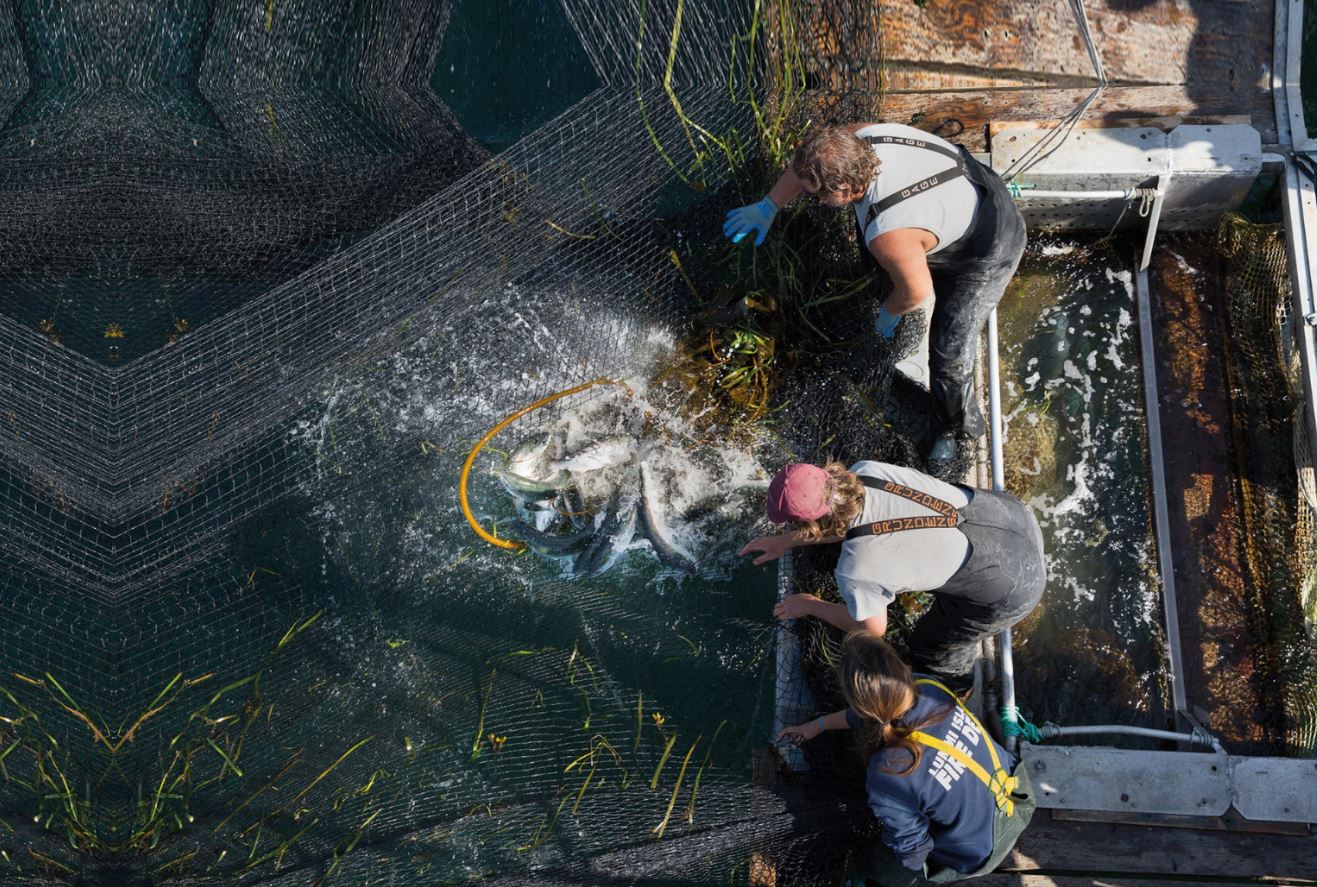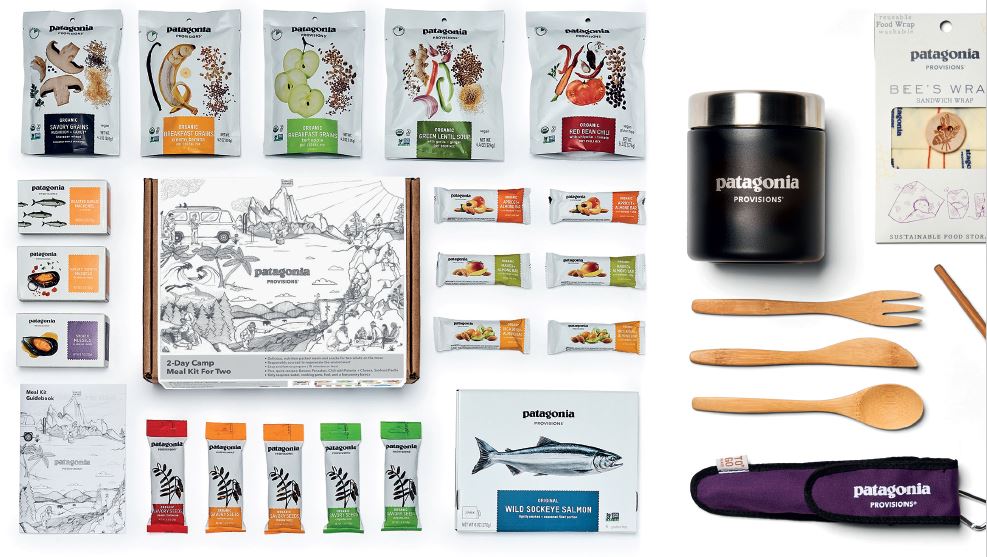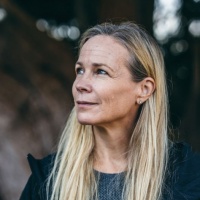Birgit Cameron : "There is a Revolution Brewing"

INTERVIEW
Sustainability MAG: You are at the head of Patagonia Provisions, the brand that has been making a name for itself in the food industry for several years. The founder of Patagonia, Yvon Chouinard, said of this business line: "To me, Provisions is more than just another business venture. It's a matter of human survival." What an ambitious plan!
Birgit Cameron: Indeed, that is an important quote because, ultimately, food and agriculture are two of the most significant contributors to the climate crisis we now face. Growing food and fiber with industrial techniques and harmful chemicals represent up to one-quarter of annual greenhouse gas emissions worldwide.
My task from Yvon was: What would a food company look like for Patagonia? How can we build this out? We are building a food business to change the way people think about how we grow and make our food. Patagonia’s mission statement is “we are in business to save our home planet”. It vastly differs from the norm of "we are in business for profit,” and impacts every decision we make. Our goal is to show that you can be profitable by putting climate first. Ultimately, we need to approach the food business differently.
That's an activist's statement…
Yes! (laughs) The reality is science is pointing in this direction. Science is the compass informing business on how we need to move forward. Especially with the pandemic, this is the moment in time when we need to make a change. When we operate differently - with people working from home and traveling less - the planet starts to recover. The science now is not just a piece of paper; it is visually tangible for people. We know if we do things differently, the planet can recover.
Your credo is regenerative agriculture. What do we know about the key role of soils? Why is it so important to preserve the soil today?
There is a wonderful book called The Soil Will Save Us by Kristin Ohlson, which helped me understand the undeniable value of healthy soil. Her book describes soil as an organism that is teaming with life and explains we are the only species destroying the very ecosystems we need for our survival. It is crucial to think of soil not as dirt you can put chemical input into, but rather as a living and breathing ecosystem. The science tells us this is an ecosystem full of life. Did you know there are more microbes in a teaspoon of soil than people on the planet? When you respect soil as an ecosystem, you realise it can contribute so much to our health and the health of our planet. When soil is functioning at its highest bar, you have better water infiltration, higher crop nutritional value, and higher yields than chemical agriculture over time. The farmers working their fields don’t get sick, and the pollinators responsible for one third of our food supply are not destroyed. What you discover is all roads lead to the soil. If we can respect it as a living ecosystem and understand what it can provide while not trying to re-engineer, we will be so much further ahead in healing the planet. We need to recreate regenerative practices that allow us to be sustainable in the future. If we switch from industrial agriculture to regenerative organic farming practices, which build healthy soil, we could turn agriculture from a problem into a solution. That is the paradigm shift that has to happen. Sometimes it means going back to the practices in place before the chemical agriculture came into play, including covering the ground, diversifying plants and fields, and rotating crops.
Well, regenerative agriculture is often seen as a simple return to old practices. But there is a lot of research and experimentation going on. How do you use scientific resources to advance regenerative farming practices?
We use science in many ways. Whatever we do, we look for substantiation of the scientific facts that are fully validated. We work with the Rodale Institute, who just released a white paper on healthy soils providing higher nutrition. This research is guiding us and lets us know we are on the right path. Collecting data and building criteria around these practices is critical. We then work with farmers who are implementing these practices. Some farmers are already there, and some of them are transitioning. We have also helped bring a new crop to market. We worked with The Land Institute and Wes Jackson to bring a whole new crop - Kernza - into the marketplace. Science tells us that Kernza’s long roots draw down more carbon than conventional wheat. Its nutty grains also make a delicious beer, so we created products around Kernza.
Do you always invent products to address specific problems you have identified?
We never build a product on trend; we create it because it is solving a problem. We developed our Savory Seeds line to bring attention to the importance of legumes as nitrogen fixers that keep soil healthy. In these products, we used lentils and buckwheat, which are vital to a healthy regenerative system. Our objective is to build the supply chains around these crops because science tells us they are essential to creating healthy soil. We work with farmers to implement regenerative practices, so their soil is at its highest functioning bar, while also creating a market for their harvests. We have taken the same approach in creating our bean soups and other Patagonia Provisions’ products. With our bison products, it's about making sure we save our Great Plains and prairies. Bison is a critical keystone species that make this ecosystem function. Therefore, buffalo is the byproduct of the conservation effort. Wild Idea Buffalo is our partner, and their meat company grew out of its conservation efforts.

"With our bison products, it's about making sure we save our Great Plains and prairies. Bison is a critical keystone species that make this ecosystem function"
There are many more examples. Breadfruit comes to mind. This effort is about creating food security, which includes making sure multi-cropping practices are in place. Breadfruit grows very well in contact with mangoes, bananas, and coconuts. If you can develop a diverse system grown within a regenerative agroforest situation, the farmers have more to sell at market, creating better economic stability. If there is a climate event, they will be more resilient. It is just about thinking differently, more realistically, and more in contact with nature, and then, we will have an abundance.
What is the latest product you launched? What specific problem does it address?
Our most recent product launch is mackerel, and this is a wonderful ocean story. Our mackerel is caught in the Bay of Biscay, off the northern coast of Spain. We work with the Good Fish Foundation to determine where there is an abundance of this species available. Mackerel is a perfect example of a delicious food that is lower in the food chain. By eating mackerel, we take the pressure off tuna or bigger fish species. Baitfish, like mackerel, are nutritionally dense, inexpensive, and have less bioaccumulation of heavy metals and other toxins. If properly managed, they could be a key component in providing us with a clean and economical protein source in our future. Bringing back mackerel and smaller fish, while using practices that help eliminate bycatch and other detrimental fishing methods, is about creating products that help regenerate the oceans.

"Bringing back mackerel and smaller fish, while using practices that help eliminate bycatch and other detrimental fishing methods, is about creating products that help regenerate the oceans"
Talking about Europe, what are your targets there?
The plan is to launch more Patagonia Provisions products in Europe soon. Working with various companies and farmers, we are assessing who are the best regenerative partners. We are looking at everything from wine to beer, baked goods, and fish. Like in the US and other locations, we will develop suitable products for specific supply chains while considering local farming and fishing methods. It’s a global approach, which is why we are in Japan as well. Our focus is on highlighting regenerative organic practices and how they are better for people and the planet. What better way than to showcase these methods through delicious food? It is exciting! Let's use food as a way of developing communities around these changes. That's a delicious revolution!
How do you measure the benefits of a regenerative agriculture approach?
We are actually under assessment right now with the Rodale Institute in testing for a variety of situations. Also, we conduct measurement projects ourselves. For instance, five years ago, we did a baseline test and took soil samples from the prairies where our bisons roam to test the carbon levels. Now we are doing a second test to show the progression over this period with the new regenerative methods included.

You recently co-founded the Regenerative Organic Alliance (ROA), a coalition whose ambition is to issue the most demanding certification in agriculture. Is there a real movement starting up? Do you feel there is a momentum for a change in scale?
I do. It is exciting that Patagonia Provisions practices in product development were instrumental in influencing the Regenerative Organic Alliance and certification. ROA has been able to pull together many companies, farmers, and ranchers from all over the world to be part of the pilot program. With the certification process recently opening to the public, more and more people are getting involved. Many large companies are looking at these practices, like Danone, and moving down this road to certification. It is incredible to see the tremendous momentum around ROA. Because of this, we expanded our website to highlight the important efforts and products of others. The goal at Patagonia Provisions is to bring in a variety of brands together that are all moving in the same direction, and showcase them on our marketplace: patagoniaprovisions.com. It is collective.
This way, consumers can easily find these amazing products. While we are just getting started, there is already tremendous traction. In truth, Europe is much further ahead than US companies, and I am very excited that this is a global movement.
You are co-producer of the award-winning film "Unbroken Ground", released in 2016, which shows promising practices and experiments and whose slogan is "The revolution starts at the bottom". Do you think the agricultural revolution is well underway?
Yes, I believe it. Especially now, with this pandemic, there is a silver lining that there is a heightened awareness about human and planetary health. And I think people will be shopping with their values much more. Many individuals, companies, and farmers are moving in this direction. There is absolutely a revolution brewing. It is urgent because we are running out of time. If we hope to get the planet back on track for the next generation to have a healthy future, this has to happen now. I have personally heard from many people that because of this movement, they are hopeful. ROA’s goal is to find solutions and help companies build products around the solutions. It is why our mission as a business is to save our home planet. With all these people moving in the same direction, you cannot believe what we can accomplish!

To be read also in the dossier "The Food To Come":





